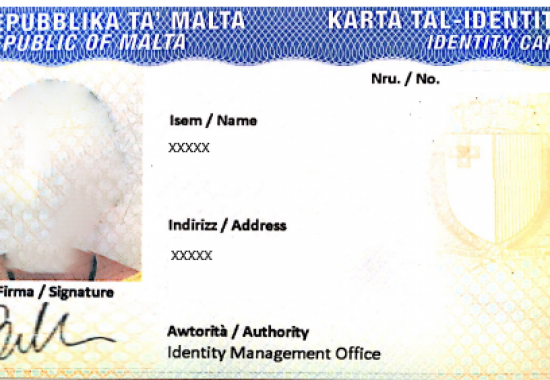Documentation & Rights
For most people, it is hard to understand the importance of having a residence card and the repercussions on daily life not having one can have. A residence card or permit contains vital information that is relied upon by authorities, healthcare providers and private persons, such as employers. It can also determine what rights that person is entitled to depending on the basis of his or her residence in Malta. These rights include the right to enter the labour market under certain conditions depending, again, on the type of residence card or permit to stay that a person holds.
Therefore, although it sounds obvious, the implications of either not holding a residence card or holding a residence card based on the incorrect law has far reaching effects for the individual. Without holding a residence card or permit an individual remains at the fringes of society, invisible and vulnerable to abuse and exploitation.
Is it only foreigners that can be without residence documents?
It is undeniable that migrants and refugees are at a far higher risk of remaining or becoming undocumented, and as a consequence unable to secure regular and stable work that would enable them to live in dignity.
However, it is also true that Maltese citizens and their families may similar face challenges in securing documents, such as homeless persons, trans and non-binary persons, persons with mental health problems and persons with disabilities.
There are also a-typical situations were children are not registered by their parents at birth with the Birth Registry, vulnerable EU-nationals are unable to access a residence card or Maltese citizenship is withdrawn.
Such communities are marked with cycles of homelessness, discrimination, drug and alcohol abuse, human trafficking, sexual exploitation, undignified living conditions, institutionalisation, deteriorating mental health conditions, higher risks of domestic and other forms of violence.
What is our work in this field?
Our legal support services are direct and target-oriented: secure correct documentation for our beneficiaries, in order to enable them to become employable in a dignified manner.
The legal information and intervention measures that we offer our clients enable them to single-handedly apply for their own documents, if sufficiently able and empowered to do so. However, if the situation is complex and requires more in-depth intervention with the relevant authorities (e.g. Identity Malta, IPA, Jobsplus, Community Malta Agency), we assist and follow clients individually in order to obtain residence documents.
The bigger picture
In the coming months, we will be carrying out consultation-based research on the relationship between the lack of personal documentation and employability. The study will focus on the institutional, legal and structural elements that create obstacles in accessing such documentation through data, personal accounts and technical analysis.
The ultimate aim is to present the findings to stakeholders in order to illustrate trends in the relationship between documentation and employability, including recommendations to facilitate access to residence papers.
This work is being carried out within the ambit of our new project Documentation = Employability: Support Services for the Documentation of Various Communities. The project is supported by the European Social Fund (ESF). For more information contact Carla on carlacamilleri@aditus.org.mt.


